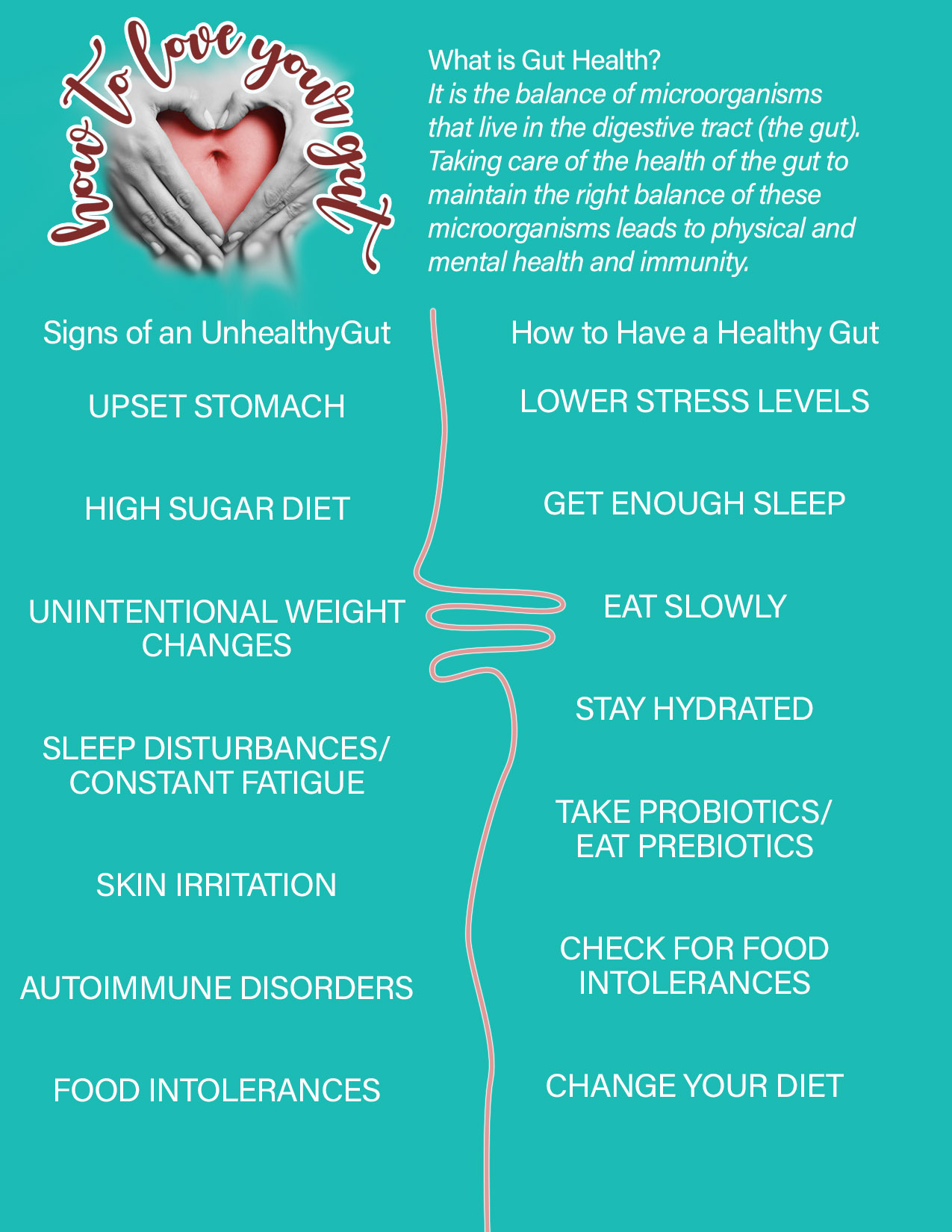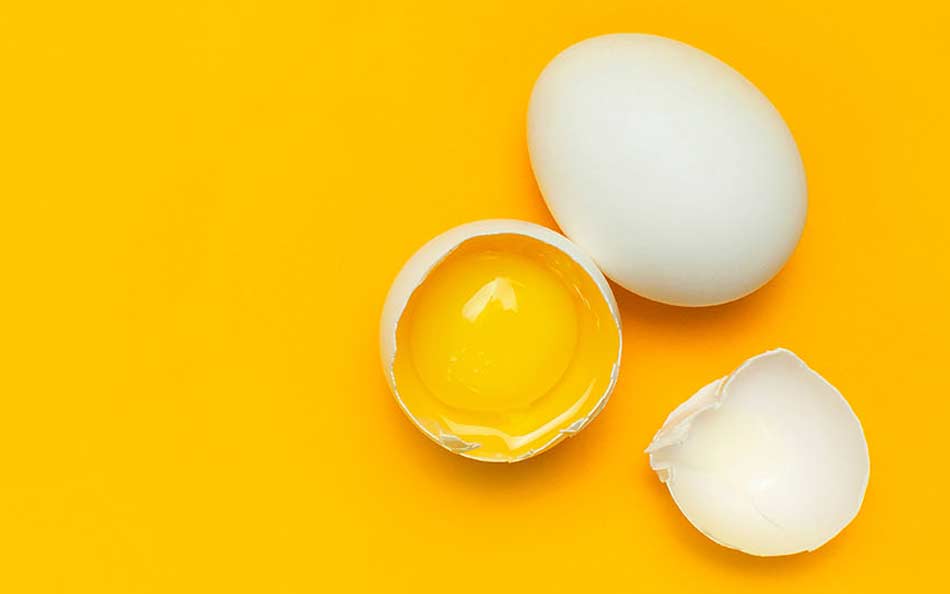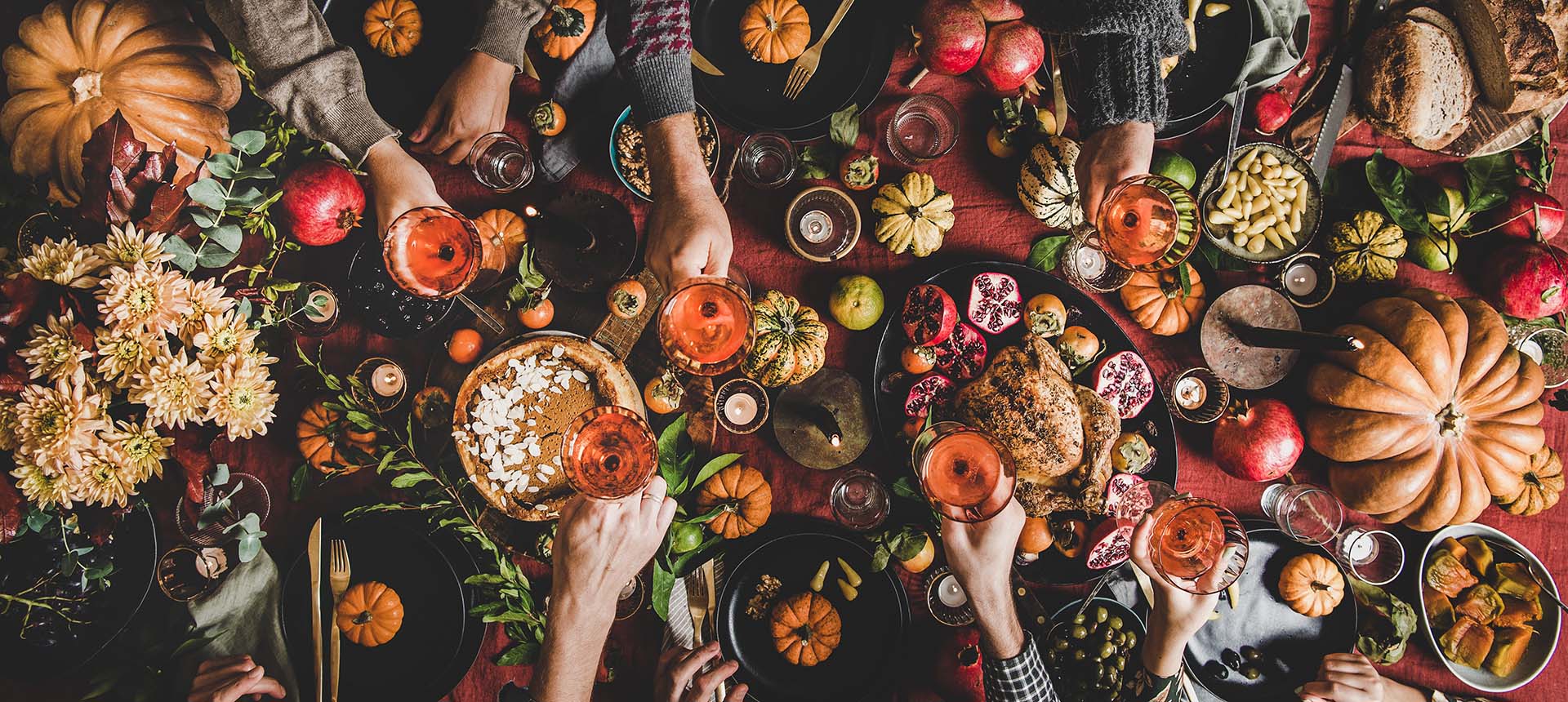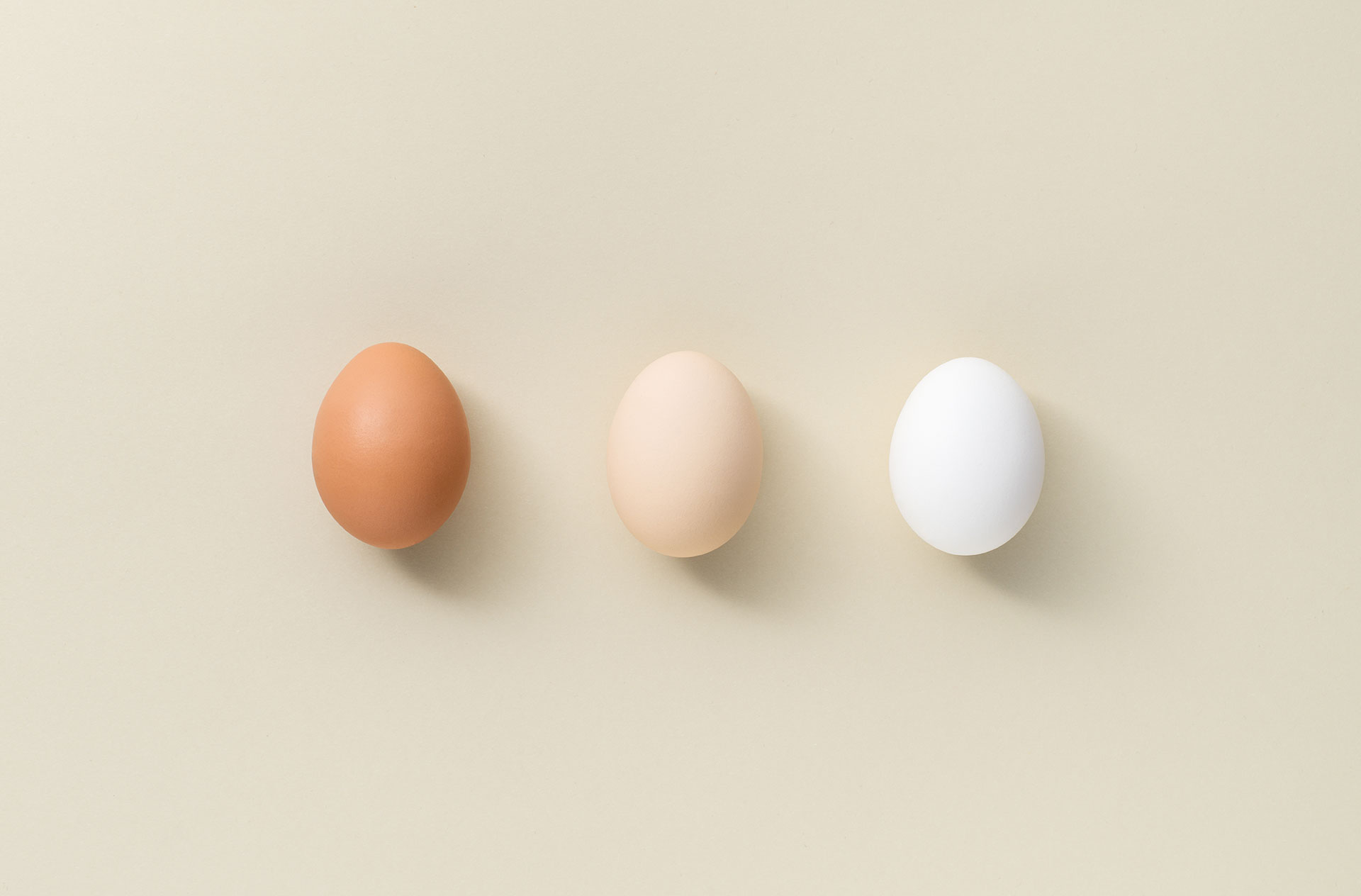
Get Back to Family Time & Experience a Wild Scavenger Hunt
December 21, 2020
Food & Nutrition: Whole Foods vs. Processed Foods
January 26, 2021by Susannah Wollman
What in the world is gut health? Isn’t “gut” just a slang word, after all? Actually, gut health is an extremely important part of your overall health, both mental and physical. The term refers to the balance of the microorganisms that inhabit your intestinal system. Maintaining the proper balance is the best way to “love your gut.”
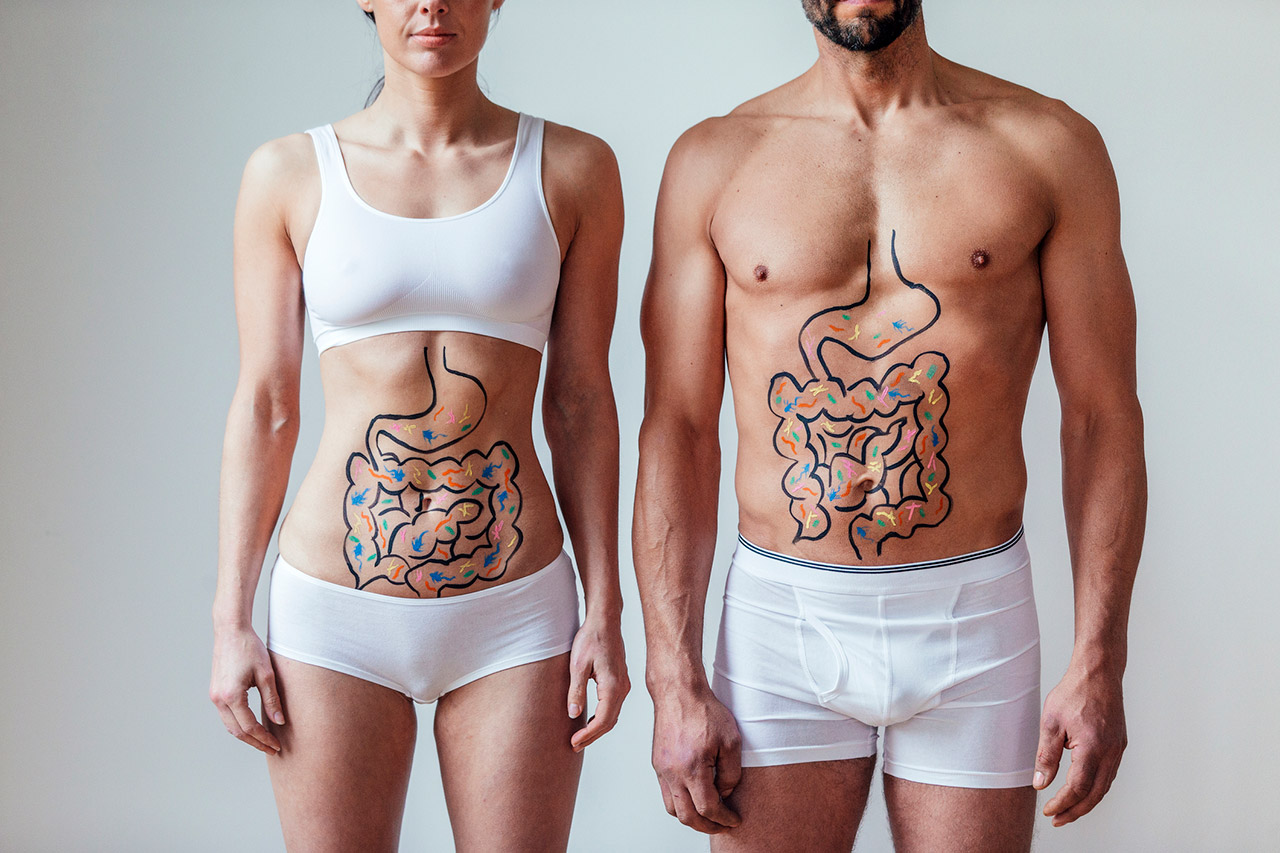
Microorganisms?
Although it might sound dangerous to have live organisms living inside of you, they are actually vital to the proper working of your body and without them, you would be very ill. But it’s a balancing act to keep them happy and healthy so your body can thrive.
We begin to acquire an internal ecosystem from the time we are born. The symbiotic bacteria and other microbes together are called our microbiome and without it, we would die. There are roughly as many microbe cells as there are human cells in our body, and most of them reside in our gut.
Some microbes are beneficial for us and others are detrimental. Maintaining a proper balance keeps us healthy. The best way to do that is to cultivate a wide diversity of microbes. The wider the diversity, the healthier our gut is.

How do we get these healthy microbes into our microbiome?
The best way to cultivate a diverse population of healthy microbes is to eat a wide variety of plant-based foods. According to New Science, “Research shows that people who have at least 30 plant-based elements in their diet every week have a wider range of bacteria in their gut, and that’s linked to better weight management, better heart health and better mental health.”
Microbes are chatty little organisms, constantly communicating with your brain. In fact, microbes can produce every neurotransmitter found in the human brain. There are cells that are part of the gut lining that recognize neurotransmitters and send signals to the brain. With that discovery, it is thought that an unhealthy gut can compromise your mood and emotions. Public health experts know living in an environment where fast food is readily available is a large contributor to the epidemic of depression and mood disorders in the western world. It also leads to heart disease and diabetes, also on the rise.
One study found that pregnant women who were given certain bacteria had lower scores on depression and anxiety tests compared with a control group. Research like this has led to the idea that mental illness could be treated using treatments that change our gut bacteria, which have been dubbed psychobiotics.
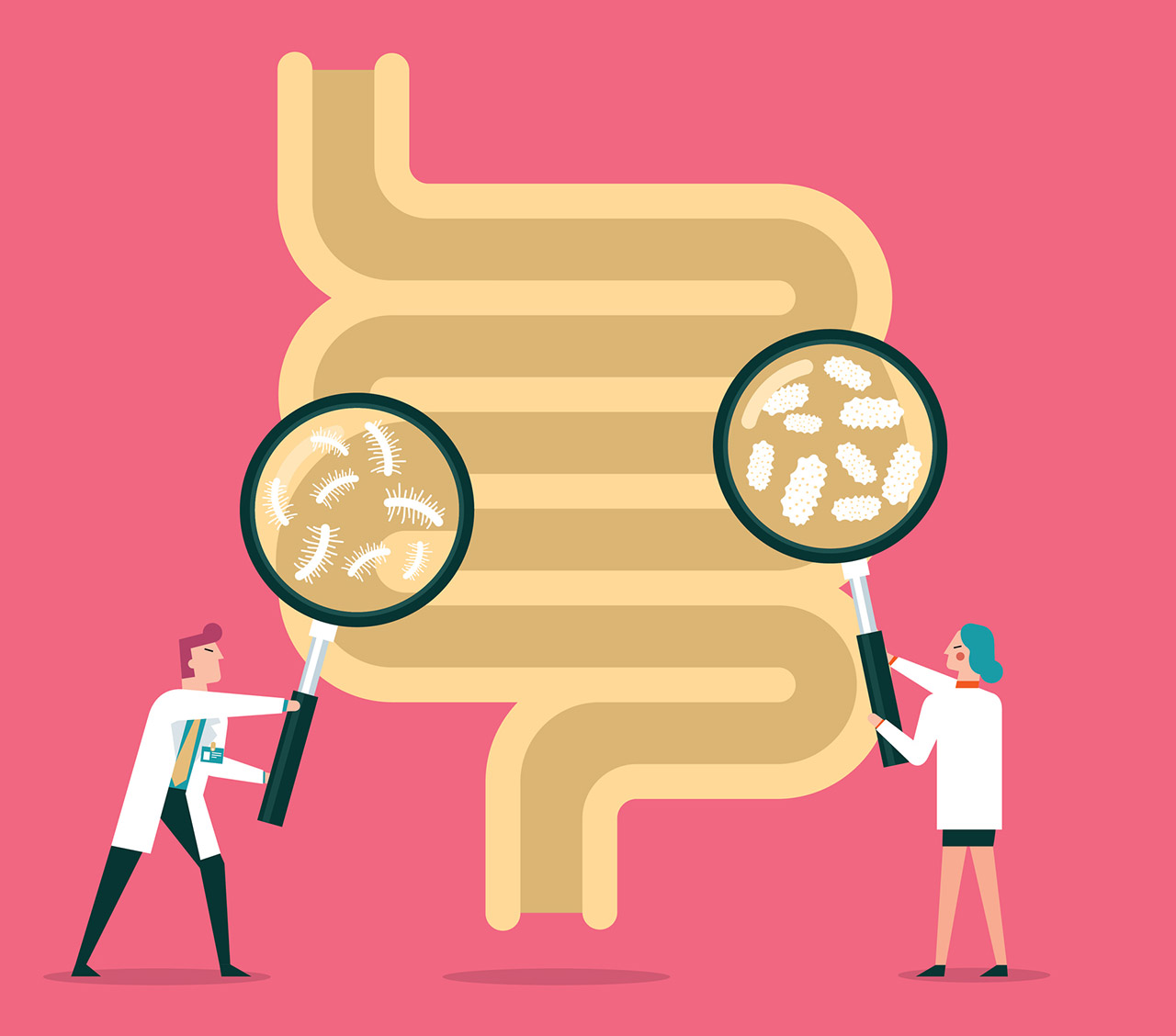
Help! How do we maintain a “healthy balance” in the gut?
If your gut could talk, it would have a lot to say. And in ways other than words, the gut does communicate to us, if we just learn to listen to it. The following are ways that your gut is telling you what it needs to be healthy.
- Do you poop on schedule? A healthy gut eliminates regularly. You may empty your bowels three times a week or three times a day; whatever is regular for you is what’s important. If you are constipated, you may be holding on for days to food that is putrefying in your body. Causes of constipation may be dehydration, low fiber, or thyroid issues. Your first thought should be your diet, though. Make sure you’re drinking plenty of water and eating a variety of fruits and vegetables.
- Do you consume a lot of processed foods? Processed foods can cause inflammation in the gut, triggering a response that sees the food you’ve eaten as an “enemy” that needs to be attacked. Ultra-processed foods comprise nearly 60 percent of energy intake in the United States and are loaded with food additives that cause inflammation. Eat more whole foods and avoid those that have ingredients you can’t pronounce!
- Consider the role of gluten. In the last 50 years or so, wheat crops have been altered to produce more drought-resistant plants. Unfortunately, our guts have not kept pace with the changes. Dysbiosis (unbalanced gut microbes) occurs with the high use of antibiotics, which kills not only “bad” bacteria, but “good” bacteria as well. Eating foods your gut can’t digest (such as gluten) can imitate invading microbes and lead to an attack by your white blood cells to fight the “invader.”
- If you’ve recently taken antibiotics, you’ve wiped out all the bacteria in your gut. Taking probiotics will help restore the good ones. Prebiotics—from foods like bananas, onions, garlic, asparagus and legumes—help replenish those good bacteria, too.
- Fermented foods are good for you. Get natural probiotics from fermented foods like sauerkraut, kimchi, miso, and tempeh and beverages like kefir and kombucha.
- Slow down! Sleeping in on the weekends may improve gut health, especially if you haven’t slept well during the week. Destressing by slowing down the pace is another way to calm your gut. And eat slower, too. The longer you chew before you swallow, the better.
Haven’t heard from your gut in awhile?
That’s good. It means that, for now at least, your gut is pretty healthy. But don’t grow deaf to the language your gut speaks! Listen to your body and when your gut is telling you to make a change, just do it. You’ll be glad you did.
